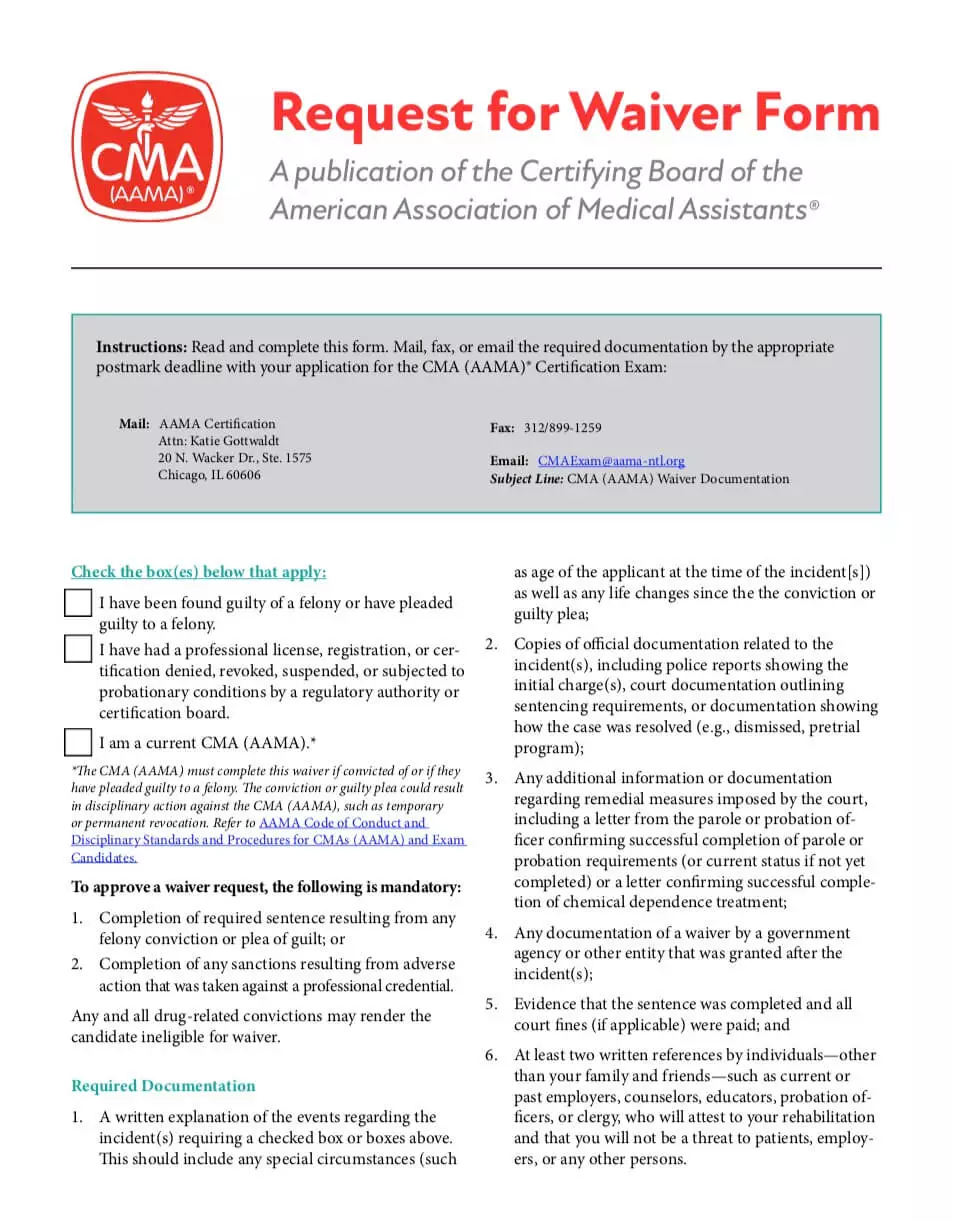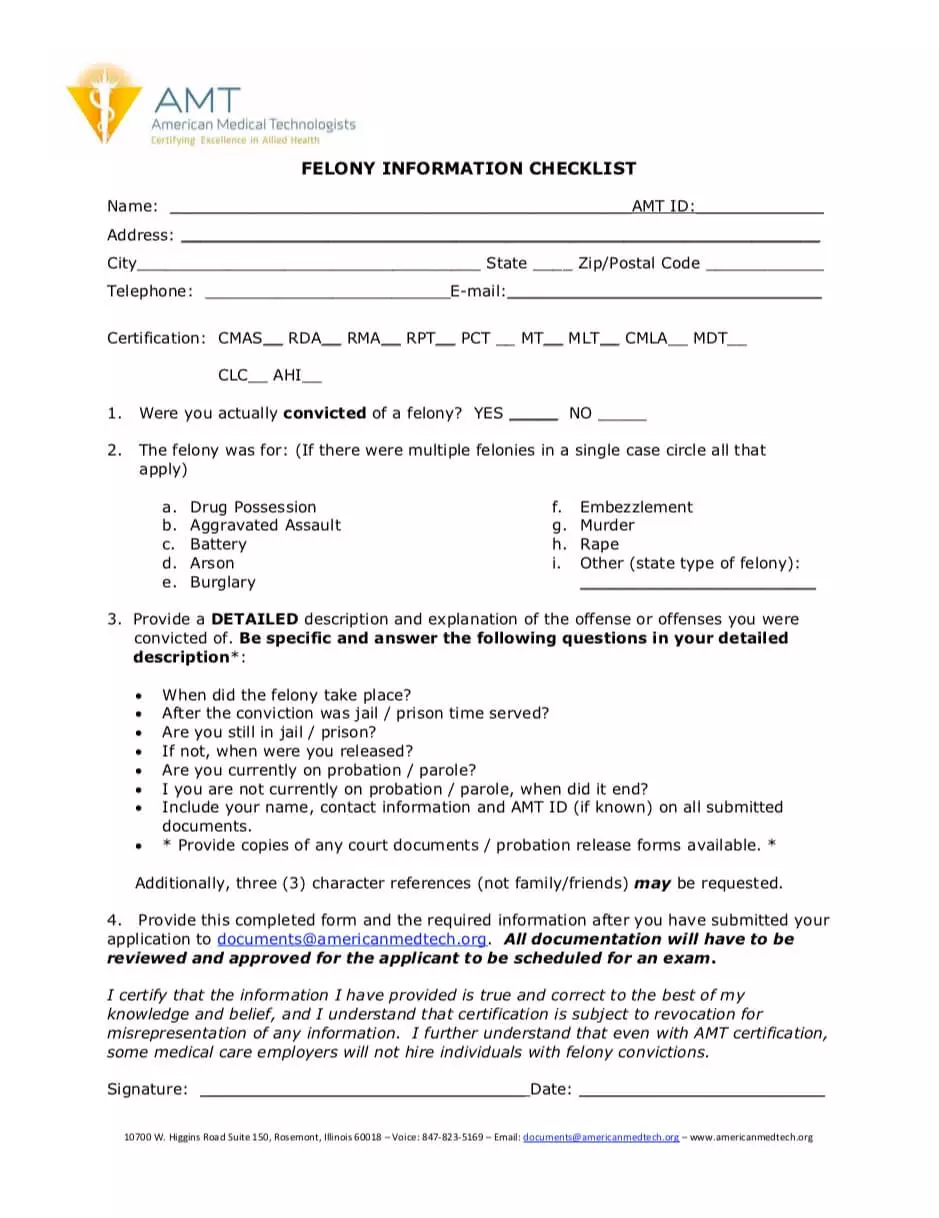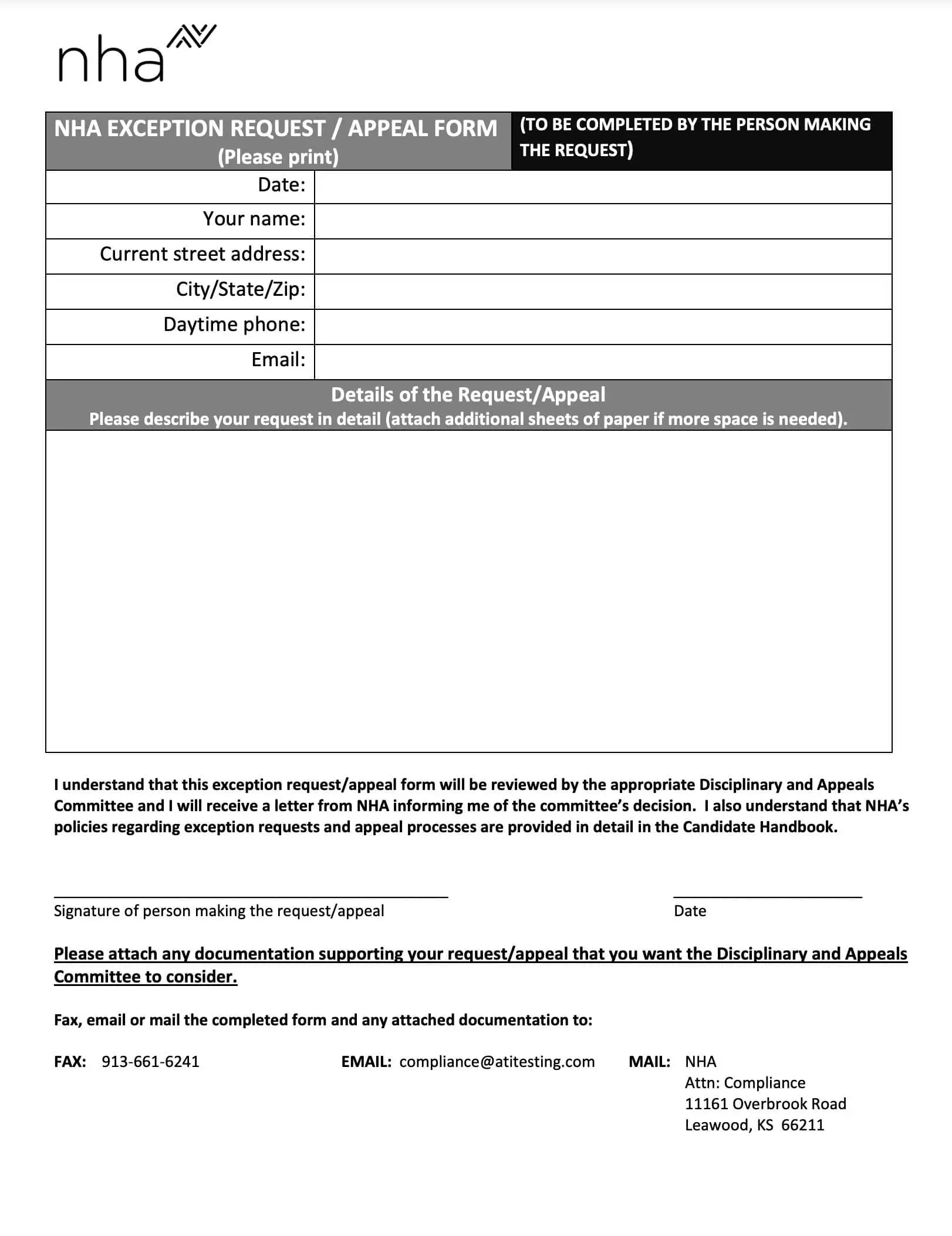A felony conviction is a serious setback, but it’s not necessarily the end of your chance to become a medical assistant.
You can’t change your past or hide it, but there are steps you can take to put it behind you. The first step is to get a waiver so you can take the certification exam, and we’re going to show you how to do that.
Keep in mind, even though one of the certifying bodies may decide to permit you to take a certification exam, some healthcare employers may still not hire you.
Unfortunately, a lot of medical facilities have a biased view on this issue and don’t hire anyone who has ever been convicted of any offense; even if it is a trivial offense like slander or possession of marijuana in small amounts.
Having said that, from an employer’s point of view, it is necessary for the protection of patients to ensure the applicant is “clean”.
Requesting a waiver from AAMA
Once you complete an accredited medical assistant program, you can apply to take the American Association of Medical Assistants (AAMA) exam to become a certified medical assistant.
The AAMA investigates the eligibility of every candidate, so just be honest; if you’re caught lying on the application or falsifying information, you just blew your chance of ever being able to take the exam.
You can get a waiver from the AAMA if there were mitigating circumstances to your case. The waiver request form requires you meet certain conditions:
- Provide a written explanation of the crime. Let them know how you have changed since your conviction, and what steps you have taken to turn your life around.
- Copies of official documentation related to the incident such as police reports, court documentation or other legal documents.
- You must certify that you are fully rehabilitated (eg. successful completion of community service hours) and would not be a threat to co-workers or patients.
- You have to have at least 2 letters of reference from someone other than a friend or relative. These can be from teachers, past employers, your probation officer.
- You have to provide criminal history since the incident(s) occurred.
The AAMA board will review the request, and if they find that your circumstances warrant a waiver, you will be free to take the exam.
You’re out of luck if you have been convicted of anything drug-related. In such a case, AAMA may render you ineligible for a waiver
Requesting a waiver from AMT
As with the AAMA application, Association Medical Technologists (AMT) consider prior felony convictions on case-by-case basis.
You will need to provide a detailed description and explanation of your case by filling out AMT’s Felony Information Checklist and attach any court records or other relevant documents.
The letter must contain the following information:
- Date and nature of felony. Did the crime involved physical injury or moral turpitude?
- Copies of any court documents, probation release (if prison)
- Personal statement providing an explanation of the felony and the events surrounding it
- Etc.
The process of becoming a registered medical assistant (RMA) is a thorough one.
Requesting a waiver from NHA
National Healthcareer Association (NHA) also considers prior convictions on a case-by-case basis. You have the option to request an exception to the eligibility requirements by following these steps:
- Complete the Exception request / Appeal form provided by the NHA (see above)
- Submit the completed form along with documentation of the conviction and provide any relevant information that may support your exception request.
- Await the decision of the NHA Committee.
- The Committee will review your request and decide whether to grant or deny the exception.
- If the exception is granted, you can proceed with the regular application process for the CCMA exam.
- If the exception is denied, you can file an appeal to the Certification Governing Board, which is the higher authority within the NHA hierarchy.
It’s important to submit your appeal within 30 days of receiving the decision letter. Keep in mind that the decision made by this Board is final and cannot be appealed any further.
The best way to convince either board that you have changed your life is to demonstrate that change. Since a medical assistant often works directly with patients, the board is more concerned with crimes against persons.
Also, as a MA you may have access to medication; if you were convicted of a drug offense, they want to know that you are clean.
You can help convince them that you deserve a chance to prove yourself by doing the following:
- If you were convicted of a violent crime, let them know the specific circumstances surrounding the crime. Show proof that you’ve undergone psychotherapy or been through anger management.
- If you’ve been convicted of a drug offense, or had substance abuse problems, let them know that you have been through rehab and received help for your problem.
- Make note of any restitution you have paid, community service performed, or any other ways that you can prove that you have paid for your crime and are now a productive citizen who deserves a second chance.
The bottom line is, be honest about your situation and show that you have made a sincere effort to turn your life around. Best of luck!


